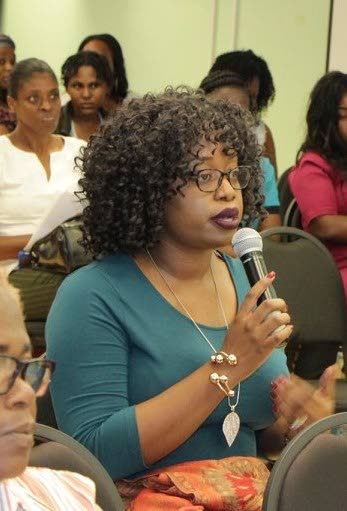Tobago youths urged to learn black history

“Racism is an honest conversation that needs to be had.”
This was the view of international and tourism development consultant Korice AQ Nancis, at last Wednesday’s Division of Tourism, Culture and Transportation’s second instalment of Black History Month virtual youth forum.
According to Nancis, in the Tobago space, there are pockets of racism linked to colonial history that should not be ignored.
She said, “Largely because we are a homogeneous society, those of us who are of Afro descent may be oblivious to nuisances of racism in this space because a lot of us look like each other; we have shared experiences, shared beliefs. However, we aren’t the only ones in this space.”
Nancis said it is "extremely important" for young Afro-Tobagonians to identify and learn about important periods in black history.
“Our history is not taught; it isn’t learnt in any real formal way. We really do not know our history unless you are a super involved young person or someone who takes initiative, or maybe exposed to it by the virtue of your family, your background."
She recalled the 1970 Black Power Movement, noting the significant role Tobagonians played, as she singled out the late former prime minister ANR Robinson.
“Young people at that time stood up and spoke out. Sometimes I wonder if our generation knew of the kinds of actions that were taken by persons that looked like them and were at the ages that we are at now and even younger, speaking against injustice and things like discrimination, things like racism, things like classism. What kind of effect would that have on how we operate now? I earnestly believe that, by and large we do not know our history, we operate in a vacuum and we are not confident and we are not empowered.”
She added, "If you do not know where you come from you cannot know where you are going."
She said the lack of identity is inextricably linked to inferiority complexes, as people tend to celebrate everything but themselves.
She said the importation of foreign culture has not helped.
“I remember a time before the advent of cable TV, not that I am saying that cable is bad but when we had less internal influences, we actually had more pride. As we opened up we did not balance, we did not strike the balance, we opened up, yes, but in opening up it was almost like who we were was completely lost. So local content, local television, local programming, all those things kind of just took second place.
Nancis described Jamaica, where she studied for six years, as one of the most Americanised Caribbean country.
“But…national pride, it doesn’t have any question about it. They have opened up but the balance was struck.
“So, when you look at the local programming, the local content, education, things in the schools, those kinds of things, a balance has been struck.”
She added: “I think we misstep when we opened up and we were not intentional about preserving and driving national pride. So when we have things like Independence (Day) and we are excited to go and look at the parade, how can that be translated to other things that we have? It goes right back to being intentional about education and celebrating our local heroes more, not in the slapdash way, it has to be more sustained and it has to be sustainable so that it isn’t looked at as a one-off.”
She noted nurturing national pride must not be left up to schools.
“So if at the policy level you’ve taken the intentional step to create awareness, you would use all mediums that are available to you and all methods to get the message across. For example, we have buses with television screens, we need to have our story in the bus while we travel, that is how you get the message across in different spaces, it's really not only on the curriculum alone.”


Comments
"Tobago youths urged to learn black history"